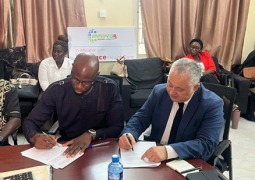
Unfortunately, in many places, including The Gambia, there is a concern that some banks do not communicate these changes adequately. Clients often discover charges or movements after they occur, leading to frustration, misunderstandings, and sometimes financial hardship.
Trust and Accountability
Trust is at the core of the client-bank relationship. Clients rely on banks to manage their funds responsibly and transparently. While banks hold and manage these funds, the account and its contents belong to the client. The bank’s role is similar to a trustee, managing funds according to the client's best interests and instructions. This responsibility underscores the need for timely communication about any actions that may affect the client’s finances.
Some clients in The Gambia report only discovering charges or account changes after they notice discrepancies in their statements. This reactive communication approach undermines trust, with clients left questioning unexpected fees or withdrawals. For instance, penalties for not maintaining a minimum balance are sometimes deducted without prior notice, causing confusion and dissatisfaction.
Case Studies of Communication Gaps
Uninformed Loan Management Fees
A client recently encountered a charge of GMD5,000.00 on his account without prior notice. He contacted the bank for clarification, but it took ten days to receive a response. The bank informed him that the deduction was for loan management fees, a responsibility previously covered by his former employer. The client was unaware of this change and was left with an unexpected financial burden.
Visa Application Fees Deducted Without Notice
In another instance, a client was charged GMD1,700.00 twice for a visa application letter but was not informed beforehand. This lack of transparency left her without the chance to budget for or question the charges, further illustrating gaps in communication within Gambian banks.
Both cases highlight the critical need for banks to communicate account charges and changes in financial responsibilities more effectively.
Importance of Timely Communication
Timely communication about account movements and charges is essential not only for good customer service but also for upholding transparency and accountability. Clients need to be aware of how their funds are managed and any associated costs, enabling them to make informed financial decisions.
Benefits of Proper Communication
Transparency
Providing real-time updates on account changes promotes openness. When clients receive advance notice of charges, it reinforces the bank’s commitment to ethical practices and reduces disputes.
Prevention of Financial Loss
Fees like overdraft charges can be financially burdensome if not communicated in advance. Informing clients of potential fees helps them avoid costly mistakes and promotes financial stability.
Customer Trust and Loyalty
Banks that prioritise clear communication build stronger relationships. Informed clients feel valued and are more likely to remain loyal and recommend the bank’s services.
Regulatory Compliance
In many jurisdictions, banks are legally required to inform clients of account movements and fee changes. Non-compliance can lead to legal disputes and penalties from regulators.
Communication Challenges in the Gambian Banking Sector
Communication gaps are prevalent in the Gambian banking sector, where services are still evolving. Many clients experience a lack of proactive communication about fees and account changes, often receiving notifications only after charges are applied. This approach differs from international standards, where clients are notified of changes before they occur. Contributing factors may include outdated banking systems, insufficient customer service training, or limited regulatory oversight. Regardless, the result is that clients feel disempowered and uncertain about their accounts.
Regulatory Oversight for Improved Accountability
To address these issues, regulatory intervention is needed. The Central Bank of The Gambia should enforce policies mandating real-time notifications for charges, movements, or changes in account terms. Additionally, banks should be required to provide clear explanations of all fees, allowing clients to understand their obligations fully. Penalties should be imposed on banks that fail to communicate effectively, encouraging them to invest in better communication systems and customer service practices.
Solutions to Improve Bank-Client Communication
Real-Time Notifications
Banks should invest in technology to send real-time notifications via SMS or email, informing clients of account changes immediately.
Transparent Fee Structures
Fee structures should be clear, with information provided upfront as part of the onboarding process and communicated regularly to existing clients.
Detailed Account Statements
Monthly or quarterly statements should include all charges, fees, and account movements in a transparent manner.
Improved Customer Service Training
Banks should ensure that customer service representatives are well-trained to explain fees, charges, and handle client concerns professionally.
Cultural Factors in Accountability
The close community ties in The Gambia may lead clients to refrain from raising complaints due to personal connections with bank employees. However, effective banking practices and customer service should not be compromised by informal relationships. Clients should feel empowered to escalate issues when necessary, fostering professionalism and ensuring that banks are held accountable for transparency and reliability. Raising concerns should be viewed as a step towards improving service standards, benefiting both clients and the entire banking industry.
By prioritising timely communication, Gambian banks can build stronger client relationships, promote transparency, and enhance accountability in the financial sector. Implementing these improvements will not only strengthen client trust but also contribute to a more stable and reliable financial system.




